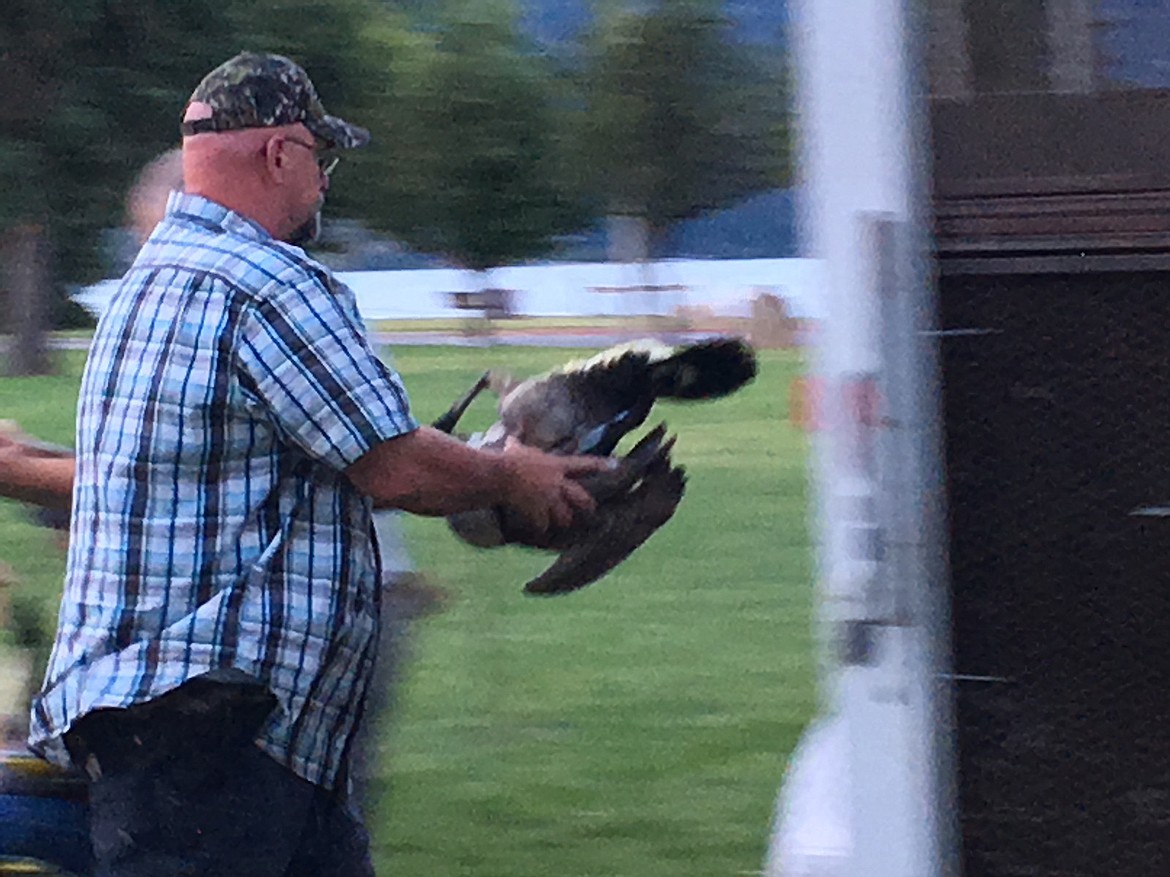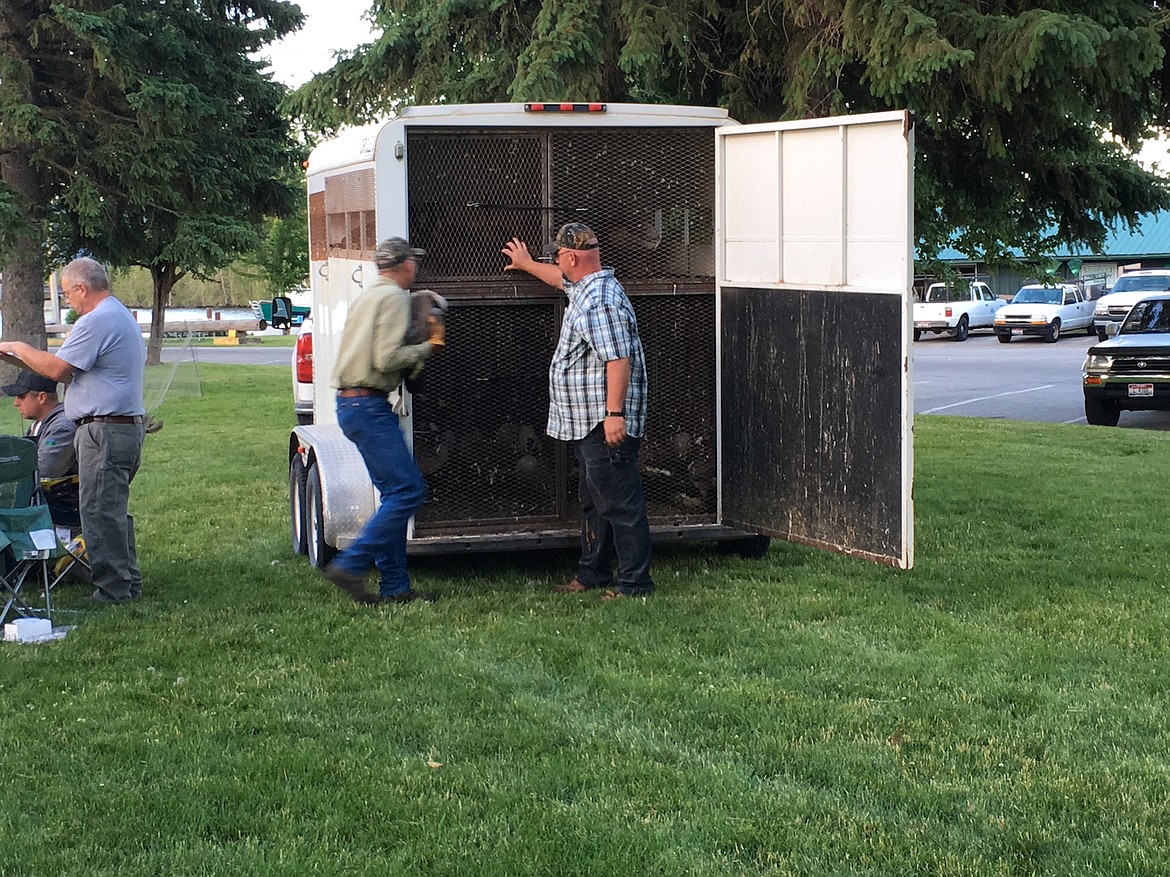City Beach geese are relocated
SANDPOINT — A total of 144 Canada geese were successfully relocated from City Beach early Wednesday morning to the Chain Lakes Wildlife Management Area in Kootenai County, according to city officials.
“I can confirm that we did capture and relocate this morning, and I am very pleased with the process and results,” Kim Woodruff, Sandpoint Parks and Recreation director, said on Wednesday afternoon.
Of the 144 geese, 40 were too small to be fitted with leg bands. There were no deaths during the relocation, said Woodruff.
The operation involved personnel from the U.S. Department of Agriculture Wildlife Services herding geese into an enclosure. A handler tucked the heads of geese under their wings to render them more docile. They were then passed off to personnel who banded the birds and placed them into two horse trailers, said Bonner County resident Jane Fritz, who witnessed the relocation effort.
The birds appeared to be segregated according to size and goslings were placed in a compartment in the front of the horse trailers to keep them from being trampled by larger birds, said Fritz.
“It was not fun to watch,” said Fritz, who has been appealing for the city to adopt a more humane approach as banded birds are marked for euthanasia if they return to the Lake Pend Oreille beach next year.
The beach’s population of resident geese has grown steadily over the last three decades, as have complaints from both residents and visitors about the amount of feces that litter the park’s grounds.
Previous efforts to manage the goose problem at City Beach, which includes sweeping and removal of fecal matter, contracting with a dog handler and placement of coyote decoys, among other efforts, comes with a price tag of more than $10,000 per year to the city. In February, Council members approved the relocation agreement with the USDA for $3,000.
“It is probably going to take three, four, five years to see what’s going to happen, but I truly think this is going to work,” Woodruff said during the February meeting.
While the plan this year is for relocation, Woodruff has said from the start that “more drastic measures” may need to be taken for long-term success. When the geese are captured again in June 2020, those with a band from the previous capture and relocation may be humanely euthanized, he said. Those captured in 2020 that do not have a band will be banded and relocated.
The city is pinning its hopes on the success of a similar relocation program in southern Idaho, which saw only a 10-percent return rate of banded Canada geese.
Although the relocation plan has a legion of detractors, it also has a legion of supporters who want relief from the dense minefield of goose excrement found on the park’s expansive lawns, bands of beach and docks.
An effort to reach a plan supporter who also viewed the relocation effort on Wednesday yielded no result.
Fritz conceded the relocation was an orderly affair, although the geese appeared to be most stressed in the makeshift corral and were handled in a manner associated with farm animals instead of wildlife. Fritz said one gander was having none of it and managed to avoid capture.
“They caught everything they saw except him,” said Fritz. “Because they mate for life, this gander is out of luck.”
Fritz added that seagulls began filling the void left by the geese that were removed. She estimated that as many as 200 of the birds flocked to the beach’s grounds.
“They were all over the beach once they swept it (of geese),” said Fritz.



